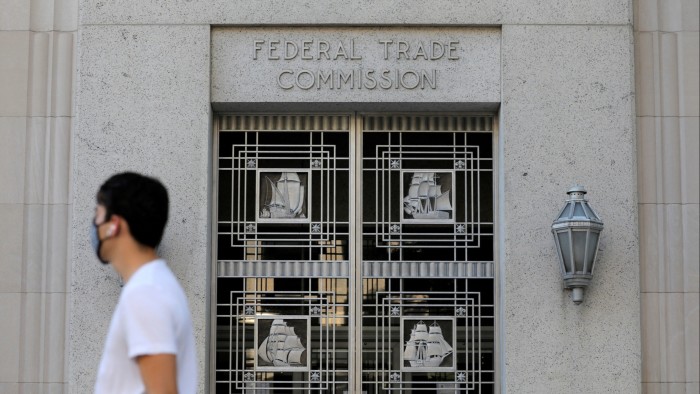Unlock the White House Watch newsletter for free
Your guide to what Trump’s second term means for Washington, business and the world
Message from Donald Trump’s antitrust investigators: Lina Khan does not work here anymore. The Federal Trade Commission is distancing itself from the legacy of its hawkish former head. Its conditional approval of a $35bn union of two chip-design software companies hints at the new direction.
Synopsys and Ansys are two of the biggest companies making software for semiconductor design and production — the kind of thing that can attract regulatory scrutiny. The FTC looked, and last week decided its concerns over competition would be satisfied if they jettison three lines of business where their combined market power would be too great.
That raises the hope that Trump, a self-proclaimed dealmaker, is amenable to other people’s deals too. Wall Street advisers have been trying to read the tea leaves about how strict the new administration would be in evaluating competition effects in mergers and acquisitions. This is the kind of posture they can live with.
Khan was generally opposed to so-called remedies — the idea that problems caused by companies combining could be effectively lessened by asset divestitures or bans on certain kinds of business practices. The view, shared by her peers at the Department of Justice, was it was better to go to court and fight for an injunction. And losing a judge’s ruling itself was not an outcome to fear.
The FTC and the justice department had made noises that, like their Joe Biden-era predecessors, they would not be pushovers on M&A. New broom Andrew Ferguson isn’t rejecting Khan’s ideas outright. However, in the FTC order on Synopsys and Ansys’ merger he suggests her goals can be addressed with more care. Fighting deals in court, he says, can divert resources needed for reviews of other deals.
More broadly — and encouraging for companies looking to tie the knot — he claims to have no reflexive bias against consolidation, in a departure from the messaging of the Biden regime. Mergers can allow investors to exit at a profit, he suggests, and such capital formation is crucial in order to promote innovation.
The chilling effect from a widely held belief that the government was out to stop deals was real. According to law firm Dechert, nine deals were abandoned amid US competition investigations in 2024, the highest since it started tracking. Settlements, similarly, were at record lows. Some boards, on advice of their lawyers, eschewed transactions because prevailing in court was not worth the time and cost of litigation.
The risk has not gone away. One transaction is not enough to make sweeping judgments, and Ferguson says he’d still rather litigate than settle. That will be tested as more deals come to light. But there is at least now evidence that there’s more room for compromise. Officials and company-side lawyers can hammer out the details, knowing that both are open to meeting somewhere in the middle.
